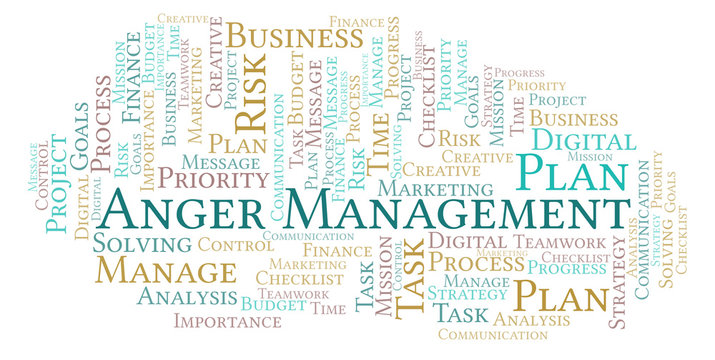Understanding Anger
Before we delve into techniques for managing anger, it's important to understand what causes anger. Anger can be triggered by a variety of factors, including perceived injustice, frustration, fear, and perceived disrespect. Anger can also be a secondary emotion that arises in response to other emotions, such as sadness, anxiety, or shame.
Techniques for Managing Anger
1. Identify triggers: One of the most effective ways to manage anger is to identify triggers that cause you to become angry. This can include certain situations, people, or thought patterns. Once you identify your triggers, you can develop strategies to avoid or manage them.
2. Practice deep breathing: Deep breathing is a simple and effective technique for managing anger in the moment. When you feel yourself becoming angry, take a deep breath and exhale slowly. Repeat this process several times until you feel more calm and centered.
3. Practice mindfulness: Mindfulness is the practice of being present in the moment and non-judgmentally observing your thoughts and feelings. By practicing mindfulness, you can become more aware of your emotions and learn to manage them more effectively.
4. Use visualization: Visualization is a technique where you imagine a peaceful, calming image or scene in your mind. This can help you to reduce feelings of anger and promote relaxation.
5. Use positive self-talk: Positive self-talk involves using affirming, encouraging, and rational statements to replace negative thoughts and self-talk. For example, instead of telling yourself "I can't stand this," you might say "I can handle this."
6. Exercise: Exercise is a powerful tool for managing anger and reducing stress. Physical activity releases endorphins, which can improve mood and promote relaxation.
7. Seek professional help: If your anger is persistent or interfering with your daily life, it may be helpful to seek professional help. A mental health professional can help you develop strategies for managing anger and address any underlying mental health issues that may be contributing to anger.
Conclusion
Anger is a natural human emotion that can be triggered by a variety of factors. While anger can be a healthy response in some situations, uncontrolled anger can lead to negative consequences. By identifying triggers, practicing deep breathing and mindfulness, using visualization and positive self-talk, exercising, and seeking professional help when necessary, you can learn to manage anger and keep your emotions in check. With time and practice, you can develop healthy coping mechanisms that will enable you to respond to challenging situations in a constructive way.

Very good. Make anger your Ally
ReplyDelete